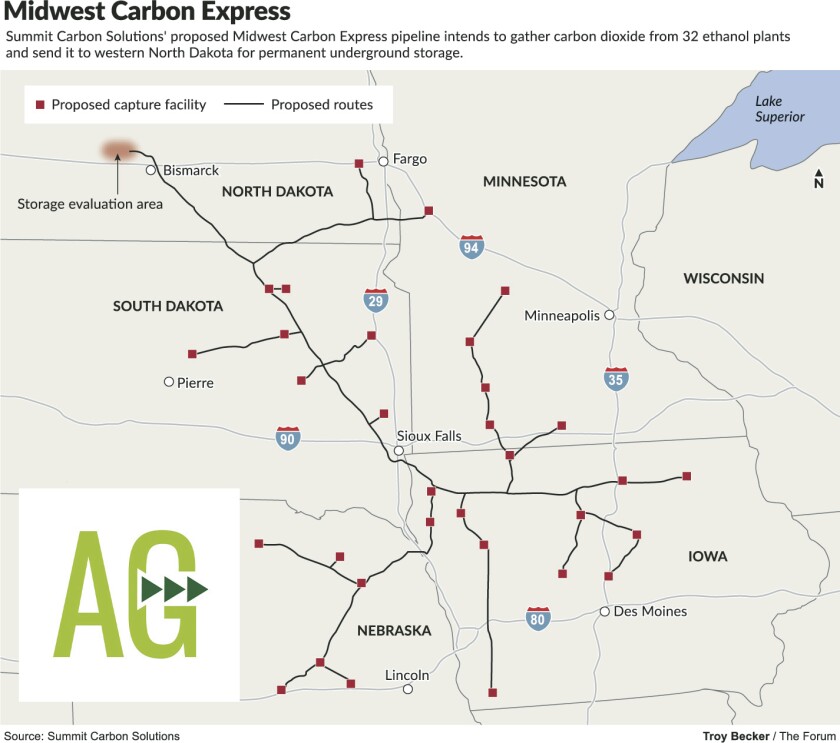DES MOINES, Iowa — With a bill to limit the use of eminent domain for carbon capture pipelines dying a quiet death in Iowa, it likely means the status quo for pipeline rules in the Upper Midwest.
Attempts to limit the use of eminent domain were made in Iowa, North Dakota and South Dakota.
The Iowa House had passed a bill to require carbon pipeline developers to secure voluntary easements from at least 90% of landowners before being granted the right of eminent domain.
But the Iowa Senate never scheduled a hearing on the bill before a key March 31 deadline, essentially killing the bill.

State Sen. Jeff Taylor, a Republican who represents part of northwest Iowa, has spearheaded opposition to the carbon pipelines. But he said Senate leaders were reluctant to strip any power away from the Iowa Utilities Board.
ADVERTISEMENT
“I think leadership on the Senate side would have to see things from a different perspective or prioritize things differently than they have so far,” he said.
There are three carbon pipeline project in the works in Iowa, two would send carbon from ethanol plants to Illinois, while the largest, the Summit Carbon Solutions pipeline, would link 32 ethanol plants to underground storage in North Dakota.
In North Dakota, the last two of a slew of bills on carbon pipelines failed to advance on March 28, one dealing with access for surveyors and another on landowner compensation that had previously been modified to a study of the issues. Eight bills related to pipelines were filed, including one that required 85% of landowners sign voluntary easements before eminent domain could be granted.
In South Dakota, a bill that would have prevented carbon pipeline projects from using eminent domain cleared the House but died in a Senate committee vote in mid-February.
In Minnesota, a bill to support carbon capture as a state policy did not gain traction. Language that would clarify that pipelines carrying gas, including carbon dioxide, would be subject to regulation by the state Public Utilities Commission, is included in a Senate Energy, Utilities, Environment, and Climate Committee omnibus bill.
The Minnesota PUC asserted its authority over carbon pipelines in 2022.
No significant legislation was proposed in Nebraska, where there is no state agency with authority over carbon dioxide pipelines.
In other carbon pipeline developments:
ADVERTISEMENT
- The Minnesota PUC on March 30 denied a request from Clean Up the River Environment, also known as CURE, that the agency do an environmental review for the entire Minnesota footprint of the Summit pipeline project. Summit so far has only filed for a permit for a section of pipeline that runs through two northwest counties — Otter Tail and Wilkin — before crossing into North Dakota.
- The third Summit Carbon Solutions pipeline hearing held by the North Dakota Public Service Commission is 9 a.m., Tuesday, April 4, at the North Dakota State College of Science in Wahpeton. It is intended primarily for residents of Richland and Cass counties. The first hearing was held in Bismarck and the second in Gwinner. A fourth hearing is set for Linton on May 9 and a continuation of the Bismarck hearing has been tentatively set for June 2.
- Summit Carbon Solutions has filed a lawsuit against another county. The company is suing the county board in Emmet County, which borders Minnesota. The county passed an ordinance restricting carbon pipelines that Summit says contradicts state and federal law, KCAU-TV reports on siouxlandproud.com .













